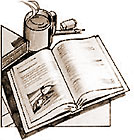
Atlas F1 Columnist
IT WAS FUN! MY FIFTY YEARS
OF HIGH PERFORMANCE
By Tony Rudd.
Published by Haynes Group.
Tony Rudd either has the memory to end all memories, or a series of extraordinarily detailed diaries. A couple of weeks have passed since I finished reading this book, and I'm still staggered by Rudd's ability to recount events from decades ago in such detail. Coupled with the enthusiasm of Rudd's writing, this attention to detail is probably a large part of the reason that his popular autobiography, first published nine years ago, has been deemed worthy of reissue.
Rudd, for the uninitiated, was an A-list engine man who was at ground zero for BRM's valiant efforts to offer a serious British challenge to the might of the European Grand Prix superpowers, and then moved on to become a senior figure at Lotus in the post-Clark era, remaining with the marque up to and beyond the passing of company founder and spearhead Colin Chapman.
It's a story well worth telling, and Rudd rises to the occasion beautifully. The author's climb to the upper ranks of Formula One's engineering elite coincided with the rebirth of motorsport in the aftermath of the WWII and subsequent 'golden era' of the late 1960s. Although he was less involved in motorsport on a day-to-day basis later in his career, he always had a toe in the water. It follows, then, that a large part of his story is also the story of the technical development of F1 itself.
Rudd's technical accounts are as comprehensive as the rest of the book, making this especially appealing to racing's tribe of tech boffins. I must admit that my rather rudimentary understanding of engines let me down once or twice (or three or four times) while I was reading this.
When describing a particular development or troubleshooting process, Rudd powers straight on at full speed. If your grounding in the workings of an engine is as shaky as mine (I know the various bits and what they do, but if you took one apart in front of me there is no way in hell I could put it back together – but I'd be more than happy to supply you with coffee and biscuits while you did it), then you should know now that there will be points during the book where Rudd's genius is lost on you. This is certainly not a criticism of the book, though, and it didn't in any way detract from my enjoyment of it.
The historical worth of Rudd's memoirs is immeasurable. Being in the coal-face during the formative years of BRM and Lotus - particular given the cloudy accounts that exist elsewhere of the latter during Chapman's later years - more than qualifies Rudd to speak authoritatively about a number of subjects that still retain a sense of controversy a few decades down the track.
Rudd's shrewd observations extend beyond simple engineering matters, and coupled with his honesty, there is plenty of food for thought. Take his recollections of Stirling Moss, for example:
"He (Stirling) tried Ron's (Flockhart) car, decided he liked it best but recognised that the engine we had given him for 256 was much better, so we had to switch them over the night before the race. In the process we must have damaged the brake pipe from the front master cylinder. Stirling went into an easy lead but on the fourth lap sensed something wrong and managed to spin the car to a standstill going into copse with a broken front brake pipe. We found the tell-tale mark."If Stirling had driven either car, with the original engines as we prepared them with loving care at Bourne, he would have won comfortably. At that time, he was on top form and easily faster than any other driver competing. How many races he threw away by his search for a little more performance when his natural skill put him head and shoulders ahead of his contemporaries in the late 1950s, no one will know – perhaps enough to have given him the World Championship more than once." (p. 115)
Plenty of similar insights await the reader, although not all are of such gravity as the extent to which the 'greatest driver never to win a World Championship' determined his own lack of titles. For instance, until I read this book, I had no idea that Graham Hill went through a stripping phase...
This book has become a classic, and deservedly so. It is easily one of the best autobiographies to have appeared in the last 15 years, and will inevitably remain a treasured volume on the shelves of both historians and regular fans for years to come. It carries an air of long-lasting value, importance, and permanence that is rare in an era where many new titles feel so disposable. My only disappointment was that it has taken me so long to get around to reading it.
Please Contact Us for permission to republish this or any other material from Atlas F1.
|
Click here to purchase this book from the Atlas F1 Bookstore
Volume 8, Issue 48
Atlas F1 Special
Wherefore Art Thou Jaguar?
Gambling on Pizzonia
The Jaguar Trivia Quiz
Columns
Off-Season Strokes
Bookworm Critique
Elsewhere in Racing
The Grapevine
> Homepage |

